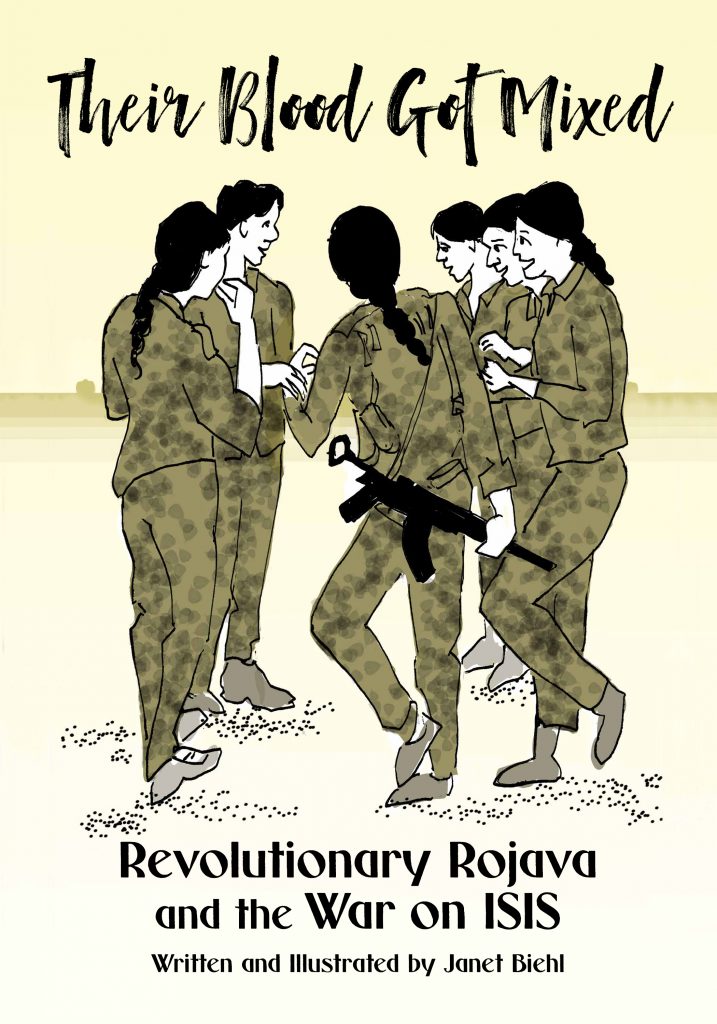By Andrew Chuter
Green Left
January 8th, 2024
Their Blood Got Mixed is a graphic memoir through the heart of a remarkable experiment in self-determination. Set against the backdrop of the Syrian civil war and the rise of Islamic State (ISIS), it paints a picture of the Kurdish-led revolution in Rojava, a region in north-eastern Syria.
Biehl visited Rojava twice and returned in 2019 to conduct extensive interviews delving into the history, economics, democratic processes and realities of war.
She traces the roots of the revolution back to the Arab Spring and the Kurdish people’s long-suppressed aspirations for autonomy under Syrian oppression. In 2012, amidst the chaos of the civil war, the Kurds seized their opportunity. Inspired by the ideas of anarchist philosopher Murray Bookchin and imprisoned Kurdish leader Abdullah Öcalan, they embarked on building a society based on direct democracy, communalism and gender equality. This experiment, known as democratic confederalism, aimed to create a mosaic of diverse ethnicities and religions living together with equal rights.
One of Rojava’s most striking aspects is the central role played by women. Biehl highlights the Women’s Protection Units (YPJ), a fierce fighting force instrumental in defeating ISIS. Women’s voices resonate throughout the narrative, challenging traditional norms and asserting their right to participate in all aspects of society.
The graphic novel doesn’t shy away from war’s brutal realities. Biehl portrays ISIS’s devastating impact on the region, but also the unwavering determination of the People’s Protection Units (YPG) and YPJ in pushing back. Their 2019 victory marked a turning point, but Rojava’s fight continues with ongoing bombing by Turkey and Öcalan’s unresolved imprisonment.
The rough and sketchy artwork avoids creating the sense of a predetermined outcome, but instead of a people working out their own destiny in real time and adaptable to changing circumstances.
This graphic novel serves as an excellent and accessible introduction to revolutionary Rojava. Through Biehl’s lens, readers gain a nuanced understanding of this ongoing experiment in self-determination, its challenges, triumphs, and enduring spirit.







